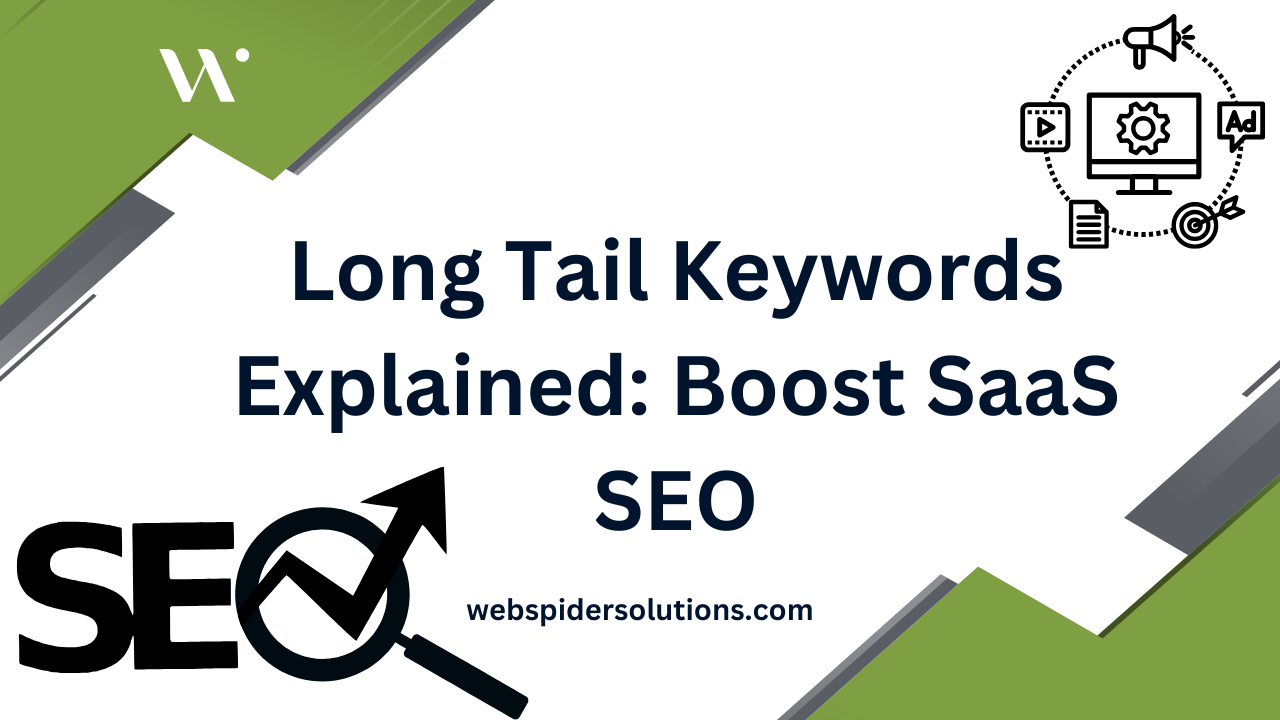Search Engine Optimization sounds like something only tech experts care about but over 68 percent of all online experiences actually start with a search engine. It seems obvious that a few tweaks to your website could make all the difference. The twist is you do not need a massive budget to outrank competitors and reshape how people find your business online.
Table of Contents
- Defining Search Engine Optimization: What It Is
- The Importance of Search Engine Optimization for Businesses
- How Search Engine Optimization Functions: The Essentials
- Key Concepts of Search Engine Optimization Explained
- Real-World Impact of Search Engine Optimization Strategies
Quick Summary
| Takeaway | Explanation |
|---|---|
| SEO enhances website visibility. | Search Engine Optimization improves rankings in search results, attracting more visitors. |
| Content quality is crucial for SEO. | High-quality, relevant content matches user intent and improves organic search results. |
| SEO requires technical optimization. | Websites must load quickly and have structured architecture for better search engine navigation. |
| Keyword research drives targeted traffic. | Identifying relevant search terms helps businesses attract high-intent visitors actively seeking solutions. |
| SEO builds credibility and authority. | Higher search rankings enhance trustworthiness in the eyes of potential customers. |
Defining Search Engine Optimization: What It Is
Search Engine Optimization (SEO) is a strategic digital marketing approach designed to enhance a website’s visibility and ranking in search engine results pages (SERPs). At its core, SEO is about understanding how search engines like Google evaluate and present web content to users searching for specific information, products, or services.
The Fundamental Purpose of SEO
The primary objective of SEO is to improve organic search visibility, which means attracting more website visitors without paying for direct advertising. Search engine algorithms evaluate websites based on multiple factors including relevance, authority, user experience, and technical performance. These complex algorithms determine which websites appear at the top of search results when users enter specific queries.
Key Components of SEO Strategy
Effective SEO involves a multifaceted approach that encompasses several critical elements:
- Content Optimization: Creating high-quality, relevant content that matches user search intent
- Technical Performance: Ensuring websites load quickly, are mobile-friendly, and have clean site architecture
- Keyword Research: Identifying and strategically using terms potential customers are searching for
Businesses seeking to improve their online presence can explore our comprehensive SEO strategy guide to understand how these components work together. By implementing a robust SEO strategy, organizations can significantly increase their digital visibility, attract more targeted traffic, and ultimately drive business growth through improved search engine rankings.
The table below breaks down the primary components of an effective SEO strategy, summarizing their role and impact as described in the article.
| Component | Description | Impact on SEO |
|---|---|---|
| Content Optimization | High-quality, relevant content aligned with user search intent | Improves relevance and rankings |
| Technical Performance | Fast-loading, mobile-friendly, clean site architecture | Enables efficient crawling and indexing |
| Keyword Research | Selection and use of relevant, high-intent search terms | Drives targeted website traffic |
| User Experience | Seamless, engaging website interactions | Enhances engagement and retention |
| Link Building | Establishing connections with reputable external sites | Boosts authority and credibility |
The Importance of Search Engine Optimization for Businesses
Search Engine Optimization is no longer an optional strategy but a critical business imperative in today’s digital marketplace. Companies across industries recognize that online visibility directly translates to competitive advantage and potential revenue growth.
Driving Organic Business Growth
Research from Ahrefs reveals that 68% of online experiences begin with a search engine, underscoring the pivotal role of SEO in connecting businesses with potential customers. By optimizing website content and technical infrastructure, organizations can attract high-intent visitors who are actively searching for their products or services.
Strategic Business Benefits of SEO
SEO offers multifaceted advantages for businesses beyond simple website traffic:
- Cost-Effective Marketing: Unlike paid advertising, organic search results provide sustainable long-term visibility without continuous financial investment
- Credibility and Trust: Higher search rankings signal authority and reliability to potential customers
- Targeted Audience Acquisition: SEO helps businesses reach specific demographic segments precisely when they are seeking relevant solutions
Businesses looking to understand the deeper mechanics of digital visibility can learn more about SEO terminology and strategies to develop a comprehensive online presence. By implementing strategic SEO practices, companies can transform their digital footprint, turning search engine rankings into a powerful mechanism for sustainable business growth and market expansion.
This table organizes the strategic business benefits of SEO referenced throughout the article, helping readers see the distinct advantages in a clear, comparative format.
| Business Benefit | Explanation |
|---|---|
| Cost-Effective Marketing | Gains long-term visibility without ongoing advertising expense |
| Credibility and Trust | Builds customer confidence through higher search rankings |
| Targeted Audience Acquisition | Reaches users actively seeking related solutions |
| Increased Organic Traffic | Attracts visitors without paid efforts |
| Enhanced Brand Credibility | Positions business as authoritative within its market |
| Competitive Market Positioning | Outperforms rivals through optimized visibility |
| Sustainable Business Growth | Provides a foundation for enduring digital expansion |
How Search Engine Optimization Functions: The Essentials
Search Engine Optimization operates through a sophisticated mechanism of technical and content-based strategies designed to communicate website relevance and authority to search engine algorithms. Understanding these intricate processes helps businesses develop more effective digital visibility strategies.
Core Search Engine Mechanics
Google’s search algorithm evaluates websites through three primary processes: crawling, indexing, and ranking. Crawling involves automated bots scanning website content, indexing categorizes this information, and ranking determines the ultimate position in search results based on perceived relevance and quality.
Critical SEO Functional Components
Successful SEO implementation requires a comprehensive approach addressing multiple technical and content dimensions:
- Technical Optimization: Ensuring website infrastructure supports smooth search engine navigation
- Content Relevance: Creating high-quality, contextually meaningful content matching user search intent
- User Experience Signals: Developing websites that provide seamless, engaging interactions
Businesses wanting deeper insights into search mechanics can explore our comprehensive SEO overview to understand the nuanced strategies driving digital visibility. By comprehending these fundamental SEO principles, organizations can develop targeted strategies that significantly enhance their online presence and competitive positioning.
Key Concepts of Search Engine Optimization Explained
Search Engine Optimization encompasses a complex ecosystem of strategic techniques designed to improve a website’s digital performance and visibility. Understanding these foundational concepts is crucial for developing an effective online presence that resonates with both search engines and potential customers.
Essential SEO Foundational Elements
Google’s official guidelines highlight several critical components that form the backbone of successful SEO strategies. These elements work synergistically to communicate a website’s relevance, authority, and user value to search engine algorithms.
Core SEO Conceptual Framework
Professional SEO strategies integrate multiple interconnected concepts:
![]()
- Keyword Research: Identifying and targeting search terms potential customers use
- Content Optimization: Creating high-quality, relevant content that addresses user intent
- Technical Infrastructure: Ensuring websites are structured for optimal search engine crawling and indexing
- Link Building: Establishing authoritative connections with reputable external websites
Businesses seeking to deepen their understanding of search optimization can explore our comprehensive SEO myth-busting guide to avoid common misconceptions. By mastering these fundamental SEO concepts, organizations can develop sophisticated digital strategies that enhance online visibility and drive meaningful engagement with their target audience.
Real-World Impact of Search Engine Optimization Strategies
Search Engine Optimization transcends theoretical concepts, delivering measurable and transformative outcomes for businesses across diverse industries. By strategically implementing SEO techniques, organizations can fundamentally reshape their digital performance and market positioning.
Quantifiable Business Performance Enhancement
Research from academic digital marketing studies demonstrates that systematic SEO implementation can dramatically improve organizational visibility and engagement. Companies implementing comprehensive SEO strategies typically experience substantial improvements in website traffic, customer acquisition, and overall digital presence.
Strategic Business Outcomes of SEO
Effective SEO strategies generate multidimensional benefits for businesses:
- Increased Organic Traffic: Generating high-quality website visitors without continuous advertising expenditure
- Enhanced Brand Credibility: Establishing digital authority through higher search engine rankings
- Competitive Market Positioning: Outperforming competitors by strategically capturing targeted search audiences
- Cost-Effective Marketing: Achieving long-term digital visibility with sustainable, scalable investment
Explore our comprehensive SEO ranking factors guide to understand how strategic optimization translates into tangible business growth. By recognizing SEO as a sophisticated business strategy rather than a mere technical exercise, organizations can unlock unprecedented digital potential and transform their online competitive landscape.

Ready to Transform Your SEO Knowledge Into Lasting Business Results?
After exploring what Search Engine Optimization is and why it matters, you may be wondering how to turn these principles into meaningful action. Many businesses face the same struggle—understanding SEO concepts like technical optimization, keyword research, and content relevance is one thing, but applying them effectively for real-world growth is far more challenging. If you want your website to stand out among competitors and achieve genuine digital visibility, you need more than just definitions.

Our team at Web Spider Solutions specializes in building focused strategies, from technical SEO audits to data-driven solutions that help turn search terms into new leads and lasting customers. For fresh ideas on industry trends and real-world applications, explore our Stories Archives. If you are ready for more traffic, stronger rankings, and a boost to your bottom line, do not wait. Visit Web Spider Solutions and request your personalized consultation today. See how the right SEO strategy can help your business grow in today’s digital marketplace.
Frequently Asked Questions
What is Search Engine Optimization (SEO)?
SEO is a digital marketing strategy aimed at increasing a website’s visibility and ranking in search engine results pages (SERPs) through various techniques like content optimization, technical performance improvements, and keyword research.
How does SEO improve a website’s visibility?
SEO enhances a website’s visibility by optimizing its content and technical infrastructure, which helps search engine algorithms understand and rank the site higher for relevant search queries.
What are the main components of an effective SEO strategy?
An effective SEO strategy includes content optimization, technical performance, keyword research, and user experience design, which work together to improve organic search visibility.
Why is SEO important for businesses?
SEO is crucial for businesses because it drives organic traffic, creates brand credibility, and offers a cost-effective marketing solution, ultimately leading to increased customer acquisition and revenue growth.
Recommended











